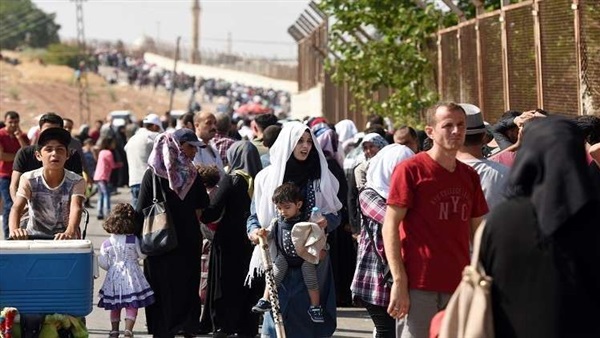German’s DeZim institute refuted Erdogan's claims about his Syrian refugee numbers

The results of a German study on the number of
Syrian refugees in Turkey showed a complete contradiction with the Turkish
official figures, especially with the claims of Turkish President Recep Tayyip
Erdogan.
German study confirmed that the number of Syrian
refugees in Turkey may have been much lower than officially announced.
The Turkish government and UNHCR are talking about
an estimated 3.6 million Syrian refugees in Turkey.
But on Monday, the German institute Dezim said on
its website that it was "realistic" to consider the number of
refugees to be around 2.7 million Syrians.
Deutsche Institute is part of the German Center for
Integration and Migration Research in Berlin, which is supported by the
Ministry of Family in Germany.
The German report concluded that the method of
reporting data on IDPs had significant weaknesses "where, for example,
there was no consistent system for regulating the way refugees were registered
and re-registered elsewhere," which also meant that the names of those
They returned to Syria or made their way outside Turkey.
The report notes that since the beginning of the
Syrian crisis, at least 984,500 Syrians have left Turkey to return to Syria or
to the EU or other countries.
Turkish President Recep Tayyip Erdogan has
threatened Europe to open its borders to Europe if Europe does not provide more
support to help his country shelter refugees.
Erdogan recently called for more money, as well as
helping his country settle Syrian refugees in northern and eastern Syria, where
he wants to settle up to three million Syrian refugees there, in order to
target the demographic nature there.
Turkey entered into a refugee agreement with the EU
in March 2016. The terms of the agreement include provision for billions of aid
to Turkey, and allowing the EU to repatriate migrants arriving illegally on a
Greek island.
Erdogan also used to play on the Syrian refugees'
card and threaten to open their borders to Europe and drown them as they did in
2015, in pressuring the EU and its countries for more material and political
gains.





